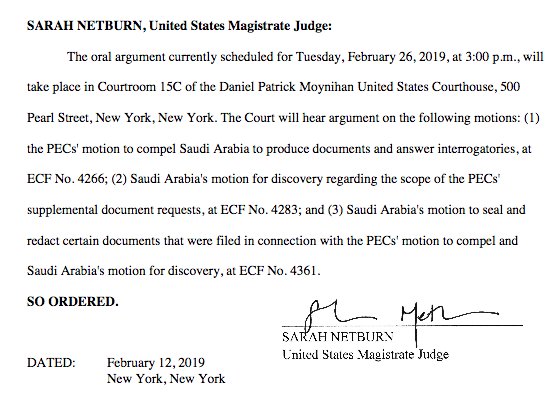Alleged 9/11 Mastermind Open to Helping Victims’ Lawsuit if U.S. Doesn’t Seek Death PenaltyGuantanamo detainee Khalid Sheikh Mohammed’s pending trial is still in flux
Khalid Sheikh Mohammed is seen in these undated photos released by the FBI. PHOTO: GETTY IMAGES
By Jess Bravin and Andrew Restuccia
July 29, 2019 2:53 pm ET
WASHINGTON—Alleged Sept. 11 mastermind Khalid Sheikh Mohammed has said he may be willing to help victims of the terrorist attacks in their lawsuit against Saudi Arabia if the U.S. government forgoes seeking the death penalty against him at a Guantanamo Bay military commission.
Mr. Mohammed’s offer was disclosed in a Friday filing in the victims’ federal lawsuit in New York, which accuses the Saudi government of helping coordinate the 2001 suicide attacks that claimed nearly 3,000 lives when terrorists crashed hijacked airliners into the World Trade Center, the Pentagon and, after passengers resisted, a Pennsylvania field. Riyadh has denied complicity in the attacks.
Separately, President Trump signed legislation on Monday that funds medical claims from victims of the Sept. 11 terrorist attacks for the rest of their lives.
In the lawsuit against Saudi Arabia, plaintiffs’ lawyers had contacted three of the five Guantanamo detainees accused in the Sept. 11 conspiracy to request depositions. In the Friday filing, a status letter to U.S. Magistrate Judge Sarah Netburn, the lawyers wrote that earlier Friday, Mr. Mohammed’s counsel told them their client wouldn’t consent to a deposition “at the present time.”
But the lawyer said that “the primary driver” of this decision is the “capital nature of the prosecution” and that “[i]n the absence of a potential death sentence much broader cooperation would be possible.”
A lawyer for the Saudi government, Michael Kellogg, declined to comment.
Mr. Mohammed, who also is suspected in the murder of Wall Street Journal correspondent Daniel Pearl, previously took a more defiant position.
At a June 2008 Guantanamo hearing, Mr. Mohammed interrupted when a military judge described the proceeding as “a death-penalty case.” It was a “martyr case,” the defendant said. “This is what I wish. I’ve been looking to be martyred for a long time,” he said.
“A lot has happened in the past 10 years,” said a person familiar with the Guantanamo proceedings. “The 9/11 defendants are not as interested as they once were in martyring themselves.”
In 2017, the Defense Department official overseeing the proceedings, Harvey Rishikof, began exploring a potential plea bargain with the Sept. 11 defendants that would exchange guilty pleas for life sentences.
Mr. Rishikof is said to have been concerned that the prosecution had been undermined by the torture inflicted upon Mr. Mohammed and other defendants at secret Central Intelligence Agency facilities overseas—an issue that has mired the case in years of pretrial hearings and raised the possibility that a military or federal court could sanction government misconduct by barring the death penalty.
After word spread of plea discussions, Mr. Rishikof was fired by then Defense Secretary Jim Mattis for what Mr. Mattis said were unrelated reasons.
One of the main goals of those now-scotched plea negotiations was obtaining cooperation from the defendants, the person familiar with the Guantanamo proceedings said.
“One of the main things that the 9/11 defendants have to offer is closure, particularly closure for the victims,” this person said. “With capital charges gone, there is an opportunity to tell the story of 9/11 once and for all.”
James Kreindler, a lawyer for the Sept. 11 victims suing Saudi Arabia, said his team contacted Mr. Mohammed and his co-defendants as part of wide-ranging discovery in the case.
“We’re trying to leave no stone unturned,” Mr. Kreindler said Monday. “But who knows whether they’ll ever testify or be honest or be cooperative?” He added that his clients take no position on the death penalty for Guantanamo defendants.
The legislation to fund victims’ medical claims, signed during a ceremony at the White House Rose Garden Monday, appropriates funds for all current and future approved claims made through the September 11th Victim Compensation Fund until 2090, at an estimated cost of $10.2 billion over the next 10 years.
“You have gone far beyond your duty to us, and today we strive to fulfill our sacred duty to you,” Mr. Trump told first responders, families of victims and survivors of the attacks who attended the White House event.
The legislation passed the Senate last week and the House earlier this month, both with overwhelming bipartisan support.
The fund was established to compensate the victims of the 2001 terrorist attacks as well as relatives of those who were killed and first responders who suffered health consequences from exposure to debris at the sites.
https://www.wsj.com/articles/alleged-9- ... 0?mod=e2tw

